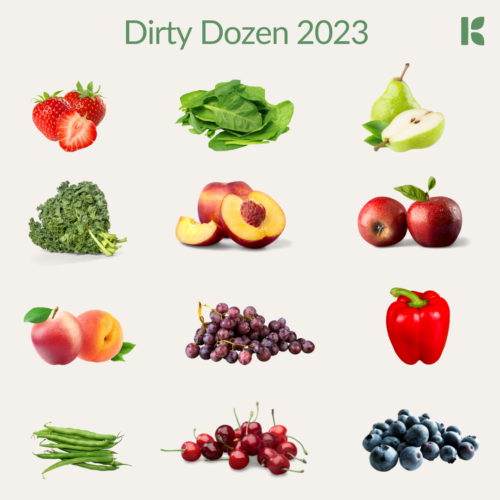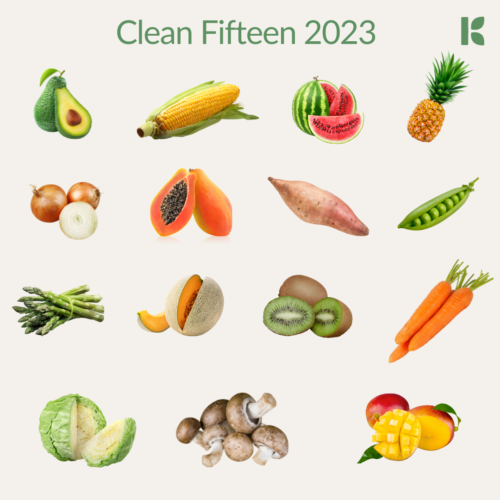
Fortifying Your Immune Health
Having lived through a once-in-a-lifetime pandemic, most of us are familiar with the basics of self-care to avoid getting sick. Despite this, the truth is that coronavirus
Are you familiar with the foods on the Dirty Dozen and the Clean Fifteen lists?
The “Dirty Dozen” and “Clean Fifteen” are lists of fruits and vegetables that are ranked based on their pesticide residue levels. These lists are published annually by the Environmental Working Group (EWG), a non-profit organisation that advocates for environmental and public health issues. The goal of these lists is to help consumers make informed choices about which produce items are more or less likely to contain pesticide residues and, therefore, may be worth buying organic.
Dirty Dozen: This list includes the 12 fruits and vegetables that, according to the EWG, typically have the highest levels of pesticide residues when conventionally grown. These are the items that are often recommended to be purchased as organic whenever possible to reduce exposure to pesticides. The list can vary slightly from year to year, but it generally includes items like strawberries, spinach, kale, nectarines, apples, grapes, peaches, cherries, pears, tomatoes, celery, and potatoes.

Clean Fifteen: The Clean Fifteen lists fruits and vegetables that are found to have lower pesticide residues when grown conventionally. These items are considered to be less of a concern when it comes to pesticide exposure, and consumers may have less need to buy organic versions of these. The Clean Fifteen often includes items like avocados, sweet corn (typically considered GMO-free), pineapples, onions, papayas (most are GMO), asparagus, kiwi, cabbage, eggplant, honeydew melon, cantaloupe, cauliflower, broccoli, and mushrooms.

It’s important to note that both lists are not meant to be definitive guides but rather tools to help consumers make choices based on their preferences and concerns about pesticide exposure. Some people may choose to buy organic produce exclusively, while others may use the lists as a reference when deciding which items to prioritise as organic purchases.
Additionally, it’s important to wash all fruits and vegetables thoroughly with water and apple cider vinegar, whether they are conventionally grown or organic, to reduce the risk of pesticide residues and microbial contamination.

Having lived through a once-in-a-lifetime pandemic, most of us are familiar with the basics of self-care to avoid getting sick. Despite this, the truth is that coronavirus

Polycystic ovarian syndrome (PCOS) is the most common hormonal disorder in females of reproductive age. This prevalent syndrome is a diverse disorder with different underlying biological mechanisms and is
Do you have any questions?
Please, get in touch.
P: 021 083 05423
E: info@keynutrition.co.nz
Do you have any questions?
Please, get in touch.
P: 021 083 05423
E: info@keynutrition.co.nz
Do you have any questions?
Please, get in touch.
P: 021 083 05423
E: info@keynutrition.co.nz
Do you have any questions?
Please, get in touch.
P: 021 083 05423
E: info@keynutrition.co.nz
Do you have any questions?
Please, get in touch.
P: 021 083 05423
E: info@keynutrition.co.nz